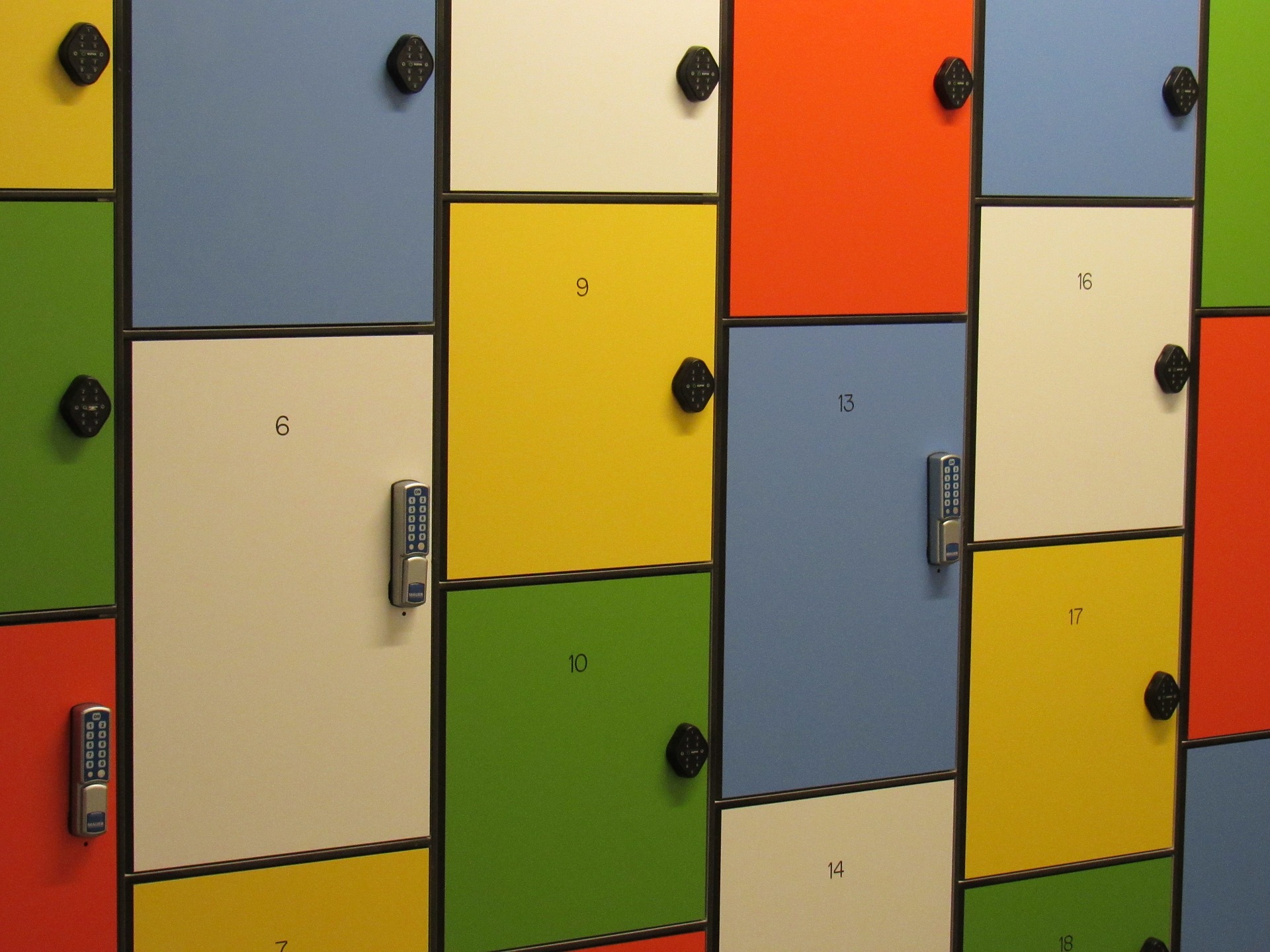Are you heading to a trade show?
Anyone who’s ever tried putting together a public product launch knows a trade show checklist is essential to standing out. After all, your competition includes anywhere from 50-250 companies as hungry as yours.
Each one will bring passion and planning to their table. You have to assume that anyway. With that assumption in mind, here’s what your to-do list should look like.
1. Get the Budget on Paper
Any preparing for a trade show checklist should start with the finances. How much money do you have allocated for things like marketing, travel, personnel, and materials?
Will you be there for the launch of a new product? Or will your attendance be more informational in nature?
Either way, there’s going to be overheard. Will that overhead, justify the projected cost-benefit you hope to achieve from the trade show itself?
This isn’t something you should ballpark. Details reduce expenses and create profits. They also provide a benchmark for future trade show marketing efforts.
Some other benefits of budgeting include the following:
- Ensuring you don’t overspend
- Helping achieve profitability if you plan on selling anything
- Providing relevant numbers for tax purposes
- Giving you a clear idea of which spending efforts are producing the best results
And that’s just a start. You also may be able to create partnerships from these exhibitions that inform data such as the cost of customer acquisition or indirect revenue generation.
2. Make the SMART Objectives
Any trade show exhibitor checklist will need to be written in the form of objectives. Objectives are specific things you hope to accomplish in the planning, execution, and breakdown of your trade show exhibition.
But for objectives to be effective, they need to be SMART, not smart. (Okay, maybe it’s both.) By SMART, we mean:
- Specific: Your list shouldn’t say, “Pack up all trade show materials.” It should say, “Pack booth into box truck rental.” In other words, each item or group of items should have tailored directives.
- Measurable: You should be able to look at your objective and determine whether (and how) it was accomplished. This ensures you remember to pack the important stuff. It also helps avoid partial shipments.
- Action-oriented: Each piece of your inventory or each goal you hope to achieve should be attached to an action verb. Think “employ,” “carry,” “ensure,” etc.
- Realistic: Can it actually be done? Or are you trying to do too much, too quickly?
- Time-sensitive: Being time-sensitive keeps you on track. It makes sure everything gets the level of attention it deserves.
Make sure your trade show preparation aligns with these components. Doing so will ensure all your objectives are SMART ones.
3. Learn Your Audience
Another essential step in how to prepare for a trade show is getting to know the people who will be there. Take the annual San Diego Comic-Con, for example.
Superhero, horror, and fantasy films and TV series earn billions of dollars each year. But that’s from general audience support.
The audience at Comic-Con is a lot different. A lot more, shall we say, fanatical?
Playing to their sensibilities have made Comic-Con one of the largest and most successful trade shows in the world. Exhibitors give the people what they want.
These “fanatics” create a culture of fandom that helps put whatever property they’re supporting on the radar of general consumers. Only when exhibitors fail to make that connection to the fanatics do their films/TV shows fall flat. So make sure your audience is priority number one.
4. Make Early Reservations
Content should be your primary focus. You need your attention on it early and often. So get room and space reservations out of the way early.
Determine how many are going, how many rooms you’ll need, and when you plan on arriving. It usually doesn’t cost anything to make a room reservation, especially when you get ahead of it.
5. Dot I’s and Cross T’s
What are the legal terms of your attendance? Is there anything you may be overlooking?
Don’t just assume you can show up and be good to go. Read the fine print. It’s not a bad idea to hand it off to your attorney either, especially when the contracts are written in legalese.
6. Figure out Your Materials
Will you have any tents with your logo on them? Printed marquees or business cards?
Flyers, handouts, reports, books – what will help you leave your mark so the audience doesn’t forget you after visiting 40 other booths?
Now’s the time to figure it out. Don’t be afraid to try something no one has thought of before.
7. Test Your Wares
Launching a product at the trade show? You don’t want the show itself to be the first test run you give to it.
If it’s possible for the product to break or malfunction, make sure it happens long before accepting your first customer. Do extensive testing on your advanced prototypes in the weeks or months leading up to the event.
8. Work out Installation
Any trade show exhibit will have a “storefront” of some kind. It could be a simple gateleg table or a more elaborate booth. Whatever you choose, make sure you’ve got the manpower and the timing down to get it installed so your people can get comfortable with the environment before accepting guests.
9. Select Your Reps
Ideally, your representatives will be an even mixture of competent and personable. Now that package can be hard to come by in just one employee. Do a deep assessment of your talent and make sure they complement one another.
You wouldn’t want a couple of Big Bang Theory-type programmers manning a software demonstration if they weren’t very good with people. The goal is to make the product accessible to general customers. Always keep the intention in mind.
10. Make Sure You Document It
What good is a successful trade show if you can’t blast out pictures on social media? Whether paid or organic, the exposure you can get from a few well-tagged, well-captioned photos gives you a lot more bang for your buck – and meaningful relationships – than a dozen Super Bowl ads.
11. Identify Your Neighbors (And Competitors)
Part of getting comfortable with the surroundings in which you’ll be operating is reaching out to the people around you. You’re both in a strange new setting. Even if you’re competitors, it’s not going to hurt to introduce yourself and share pleasantries while waiting for the crowds to build.
Beyond passing the time, however, identifying your neighbors and competition gives you a chance to learn from them and they from you. Watching each other work in the same environment will tell you whether it’s a positive or negative interaction, and it can give you ample ideas for next time.
12. Actively Promote Yourself on Social Media
Promoting the event is important before, during, and afterward. It’s important before for a rather obvious reason – you want people to show up.
During the event? Just as essential. That’s because you can pick up impulse traffic with your social media posts or provide updates to followers who couldn’t feasibly be at your location.
Finally, afterward is a nice time to reflect, post pictures, tag new and existing contacts, and make a new checklist of the things you’ll do the same (and differently) next year.
One final tip here is to consider building a paid marketing campaign before the event. That said, you can go a long way with organic if you bring your relationship marketing skills to the social network.
13. Bring Your A-Game to the Event
In many cases, trade shows are the biggest events of the year for a business. They’re a great way to get whatever you do in front of the people or companies who can help take them to the next level.
As such, you don’t want your B-Team working the room. As mentioned before, bring your most knowledgeable and outgoing people to the event.
But don’t stop there. Ensure they’ve prepared a list of personal objectives for the event. Make sure they get the proper rest and show up to the event in proper attire and ahead of schedule.
14. Ensure Demobilization
Finally, demobilization is an important part of the trade show experience. That’s because conference halls often limit the amount of time you have to clear out your displays and materials before they start charging past the contracted time.
Either hire a moving company ahead of time or ensure you bring along the appropriate amount of muscle to disband and transport trade show materials away from the location. And it helps to have an effective portable trade show display going into the event.
Make Your Trade Show Checklist a Priority
Your trade show checklist will be one of the most important documents you have when gearing up for a major event. The other stuff is important too – exhibits, materials, accommodations, but something inevitably will fall by the wayside if you wing it.
And while you’re here, check out our top tips to help you build a brand for your small business.






















